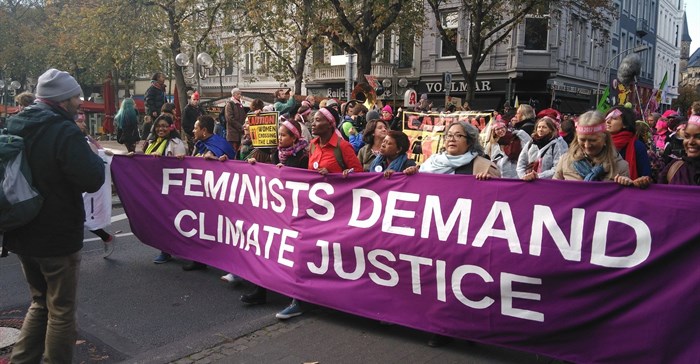Project partners of the Gender into Urban Climate Change Initiative, this International Women's Day, are urging policymakers to fully integrate gender into their climate change policies.
Worldwide, the impacts of climate change exacerbate already existing social inequalities. Women are often impacted disproportionately by the impacts of climate change compared to men. At the same time, they face limitations when it comes to participating in climate policy and responses. Nevertheless, women are crucial for solving the climate crisis.
Women tend to be more concerned about climate change and would prefer more ambitious efforts to reduce greenhouse gas emissions than men. Women remain the main providers of care work for their families and communities in most parts of the world, resulting in different needs in terms of energy and mobility compared to men. On the other hand, they can make specific contributions to mitigation, given their role as household and community managers.
“Gender and social dimensions are cross cutting issues in the Paris Agreement and SDGs, therefore, there has to be active participation by women and serious gender consideration in the governance, political and decision-making processes, to foster sustainable development, transformation, inclusiveness, bottom-up approach and climate resiliency from local level,“ explains Ndivile Mokoena, project coordinator with GenderCC SA.
International Climate Initiative
The Gender into Urban Climate Change Initiative is carried out in South Africa with cities of Johannesburg and Tshwane in collaboration with GenderCC - Women for Climate Justice e.V. in Germany, the AIWC-all India Women's Conference India, Aksi! and Solidaritas Perempuan, Indonesia and Gender Equity - Mexico, financed by the International Climate Initiative of the German Ministry of Environment.
The partners have recently developed a tool called GAMMA, gender assessment and monitoring of mitigation and adaptation policies, which serves as an instrument to find out how existing and future climate policies can be made more effective and equitable by fully integrating gender and social dimensions into the planning and implementation process. GAMMA involves three steps: first the institutional setting and procedures, second the complete range of a city’s climate policies and third an indepth analysis of the gender impacts of selected measures.
Based on the results of this assessment, the partners will be able to develop policy recommendations. Based on these recommendations policymakers will be able to make informed decisions on suitable interventions needed to address gender gaps in plans, policies and budgets. The partners will implement concrete gender-responsive campaigns and projects and work with local communities and local policy-makers in their pilot cities to achieve a transformation towards a zero-carbon, climate-resilient, equitable, gender-just environment.





































